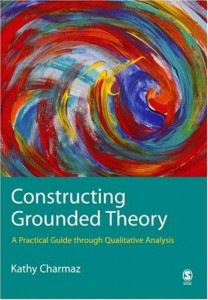
I was recently asked about my experiences using the computer assisted qualitative data analysis software (CAQDAS) application,
MAXQDA. that I used for my most recent research project while engaging in my doctoral studies at Lancaster University,
I did not initially find this software particularly easy to use, but that is not an uncommon experience as I often find most new software easy to use (I even needed support with my new Mac on more than one occasion). I got the hang of it rather quickly, and now cannot envision coding by hand any longer. I am even starting to think I can use the software to manage a literature review I have coming up . . .
What I found helpful was the way I could assign codes to pieces of text, change the wording as needed, assign multiple codes, and then view those codes across participants, making the codes and participants visible on and off as needed, to begin to see similarities (and in turn beginning the process again). I was amazed at how this helped the process of bringing meaning out of the raw data. When I have previously done this with notes in margins, or colored highlights in Word, it became a challenge to remain consistent or even to be able to manage. Making changes were then nearly out of the question.
I recall a previous module paper where I had 8 interviewees, each one 20-24 pages in length of transcribed text. I was overwhelmed with so much information, and found the lack of an easy way to navigate and manage the raw text, much less the meaning I brought to it, a hindrance to the research process itself. I decided I would not allow that to happen again, and began exploring the various CAQDAS applications. Of the various options out there, I liked MAXQDA’s colorful user interface, the commitment of their support, how they attend and support a large qualitative conference I attend, and how the student costs are very reasonable, certainly compared to the other options. I now plan to reanalyze the data from that last project using MAXQDA, and am already beginning to speculate what different and potentially richer findings await . . .
I have thought about using one of these applications several times over the years, and decided I just have to get serious about it and make the change; good decision.

